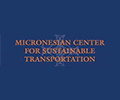IMO Inches Closer to Adopting Legally Binding Measures to Phase out Shipping Emissions Through an Equitable Transition

We welcome the overwhelming, majority support for a universal GHG levy on international shipping, which emerged at the International Maritime Organization (IMO) negotiations in London on 11-15 March (ISWG-GHG-16) and 18-22 March (MEPC82). We particularly applaud the efforts of the growing Pacific Coalition (Fiji, Kiribati, Marshall Islands, Nauru, Solomon Islands, Tonga, Tuvalu, and Vanuatu), ‘6PAC+’, and Belize, as well our fellow islanders across the Caribbean for their leadership and support in these crucial negotiations. In July 2023, the International Maritime Organization (IMO) adopted a Revised Climate Strategy to phase out greenhouse gas emissions from shipping by 2050. Now, the IMO’s 175 member states need to set legally binding measures to achieve these targets in a realistic, predictable, and equitable way. This is needed to ensure stakeholders across the industry can make investments in long-term, clean energy solutions as soon as possible.
The IMO already agreed that these measures will consist of a GHG pricing element, an economic measure, as well as a fuel standard (GFS), a technical measure, to be adopted in April 2025.
Three possible iterations an emission price emerged at the talks, with a clear, majority (34) support among countries that took to the floor (48) for the two options that include a global GHG levy:
• Eighteen countries, including the 6PAC+ and Caribbean Island states, advocated for a simple fuel standard alongside a universal GHG price, such as a levy.
• Sixteen countries supported a flexible fuel standard with a universal GHG pricing mechanism, including a levy.
• Fourteen countries favoured a flexible fuel standard with a credit trading mechanism or Emission Trading System (ETS).
However, only the levy of $150 per tonne of GHG emissions, proposed by the 6PAC+ Coalition and Belize, is strong and ambitious enough to meet the Revised Strategy goals. This is because it is the sole option on the table providing a strong enough economic incentive to speed up shipping’s clean transition, while generating enough revenue as a by-product to ensure this transition is also equitable.
Importantly, the levy ensures the “polluter pays” principle would be incorporated in the IMO’s revenue distribution design, in order to direct funds towards both pollution mitigation at whenever and wherever greenhouse gases are emitted, as they are the root cause of the rapidly worsening climate crisis.
The 6PAC+ Coalition and Belize are committed to continue working with IMO governments, advocating for a combination of measures including a GHG Fuel Standard (GFS) and a universal GHG levy, while demanding an equitable revenue distribution and prioritising the needs and interests of Least Developed Countries (LDCs) and Small Island Developing States (SIDS).
Way forward
Despite broad agreement on adopting both a GHG Fuel Standard and a GHG pricing mechanism, member states still hold divergent views on the details of the measures. They now face a challenge to agree on key elements in the future measures within a tight timeframe. Given the considerable sums involved in this ‘trillions transition’ that IMO member states have committed to, the stakes are high for all participants.
Dr Tristan Smith, Director of University Maritime Advisory Services, commended the 6PAC+ leadership in securing the majority support at the IMO in March, adding that: “It is hard to overstate the significance of what might be agreed in Spring 2025. The specifics of these policy measures will determine the ‘shape’ of international shipping, capital flows in the maritime value chains and have major implications for the economies of many countries and global trade”.
He also highlighted the interconnected themes of climate action, energy transition, and equitable development as crucial for the shipping sector’s sustainability. With only two more week-long MEPC meetings available to confirm the full design of the measures, we expect tough negotiations to follow over the summer. An expert workshop, proposed by the 6PAC+ Coalition and Belize to be held at the IMO over the summer will help shed light on how to use and disburse revenues that any combination of measures will generate. The 6PAC+ representation at these crucial IMO meetings has been backstopped with full technical and logistics support from the Micronesia Center for Sustainable Transport (MCST). MCST is a Marshall Islands owned and SIDS facing research center of excellence dedicated to spearheading research, education, and knowledge transfer for decarbonizing transport. As the IMO continues navigating the balance between taking climate action, ensuring reliable maritime trade, and safe working conditions for seafarers, the 6PAC+ Coalition and Belize remain steadfast in their commitment to steering the maritime industry towards a just and equitable future for all states, but especially the most vulnerable.
Source: Micronesia Center for Sustainable Transport (MCST)
